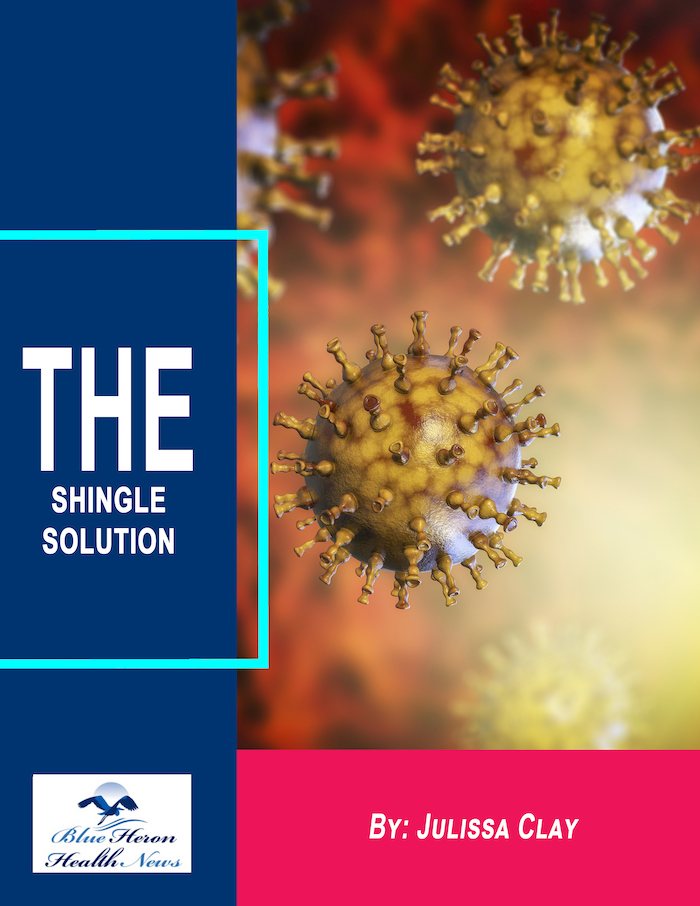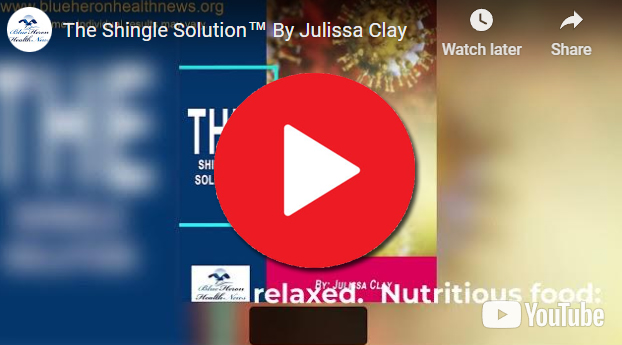
The Shingle Solution™ By Julissa Clay This eBook includes a program to treat the problem of shingle naturally. The author of this eBook, Julissa Clay, a practitioner in natural health, has killed the shingles causing virus completely to overcome the problem of PHN or Postherpetic neuralgia, one of the common complications caused by shingles. This program helps in melting PHN in a few weeks and make shingles a forgotten nightmare.
What is Ramsay Hunt syndrome?
Ramsay Hunt syndrome (RHS), also known as herpes zoster oticus, is a complication of shingles (herpes zoster) that occurs when the varicella-zoster virus reactivates and infects the facial nerve near one of your ears. It can cause a painful rash, facial paralysis, and hearing loss in the affected ear. Here’s a detailed overview of Ramsay Hunt syndrome:
Causes
Varicella-Zoster Virus
- Reactivation: Ramsay Hunt syndrome is caused by the reactivation of the varicella-zoster virus, the same virus that causes chickenpox. After a person recovers from chickenpox, the virus remains dormant in the body’s nerve tissues. It can reactivate years later as shingles.
- Infection of Facial Nerve: When the reactivation involves the facial nerve near the ear, it can lead to Ramsay Hunt syndrome.
Symptoms
Ear and Facial Symptoms
Rash and Pain
- Painful Rash: A red, blistering rash occurs on, in, and around one ear. The rash can also appear on the tongue and the roof of the mouth on the affected side.
- Severe Ear Pain: Intense, sharp, or burning pain in the ear and surrounding areas is often one of the earliest symptoms.
Facial Paralysis
- Facial Weakness or Paralysis: One-sided facial weakness or paralysis, leading to drooping of the mouth, difficulty closing the eye, loss of facial expression, and problems with eating and speaking.
- Loss of Taste: Reduced or altered sense of taste on the front two-thirds of the tongue.
Hearing and Balance Issues
- Hearing Loss: Partial or complete hearing loss in the affected ear, which can be temporary or permanent.
- Tinnitus: Ringing, buzzing, or hissing sounds in the ear.
- Vertigo: A sensation of spinning or dizziness, which can lead to balance problems and nausea.
Additional Symptoms
- Dry Mouth and Eyes: Reduced saliva and tear production due to nerve involvement.
- General Malaise: Fatigue, headache, and a general feeling of being unwell.
Complications
Postherpetic Neuralgia (PHN)
- Chronic Pain: Persistent pain in the affected area even after the rash has healed. This pain can last for months or even years.
Permanent Hearing Loss and Facial Weakness
- Hearing: In some cases, hearing loss can be permanent.
- Facial Paralysis: Facial weakness or paralysis can be permanent if nerve damage is severe.
Eye Damage
- Exposure Keratitis: Inability to close the eye on the affected side can lead to dryness and damage to the cornea (exposure keratitis).
Diagnosis
Clinical Examination
- Visual Inspection: Diagnosis is often made based on the characteristic rash and symptoms. A healthcare provider will examine the ear, face, and possibly the mouth and throat.
- Neurological Exam: Assessment of facial muscle function and other neurological signs.
Laboratory Tests
- Viral Culture or PCR: Samples from the blister fluid can be tested for varicella-zoster virus to confirm the diagnosis.
Treatment
Antiviral Medications
- Acyclovir, Valacyclovir, or Famciclovir: These antiviral drugs help reduce the severity and duration of the infection and lower the risk of complications. They are most effective when started within 72 hours of the onset of symptoms.
Corticosteroids
- Prednisone: Oral corticosteroids may be prescribed to reduce inflammation and swelling, particularly to help improve facial paralysis. Their use should be carefully considered and monitored by a healthcare provider.
Pain Management
- Analgesics: Over-the-counter pain relievers like acetaminophen or ibuprofen can help manage pain.
- Stronger Pain Medications: Prescription pain medications, anticonvulsants (e.g., gabapentin), or antidepressants (e.g., amitriptyline) may be necessary for more severe pain or PHN.
Other Treatments
- Moisturizing Eye Drops: To prevent dry eye if the ability to blink is compromised.
- Facial Exercises: Physical therapy exercises to help restore facial muscle function and prevent long-term complications from facial paralysis.
Prevention
Shingles Vaccine
- Shingrix: The Shingrix vaccine is recommended for adults over 50 and those with weakened immune systems to prevent shingles and its complications, including Ramsay Hunt syndrome.
Conclusion
Ramsay Hunt syndrome is a serious complication of shingles that affects the facial nerve near the ear, leading to a painful rash, facial paralysis, and hearing loss. Early diagnosis and treatment with antiviral medications and corticosteroids are crucial to reducing the severity of symptoms and preventing complications. Managing pain and supporting recovery through physical therapy and other supportive measures are also important. Vaccination with the Shingrix vaccine can significantly reduce the risk of developing shingles and its complications. If you suspect Ramsay Hunt syndrome, seek medical attention promptly for appropriate diagnosis and treatment.

The Shingle Solution™ if you are suffering from shingles then The Shingle Solution can be the best program for you to relieve your pain and itching by using a natural remedy. It describes the ways to use this program so that you can feel the difference after using it as directed. This natural remedy for shingles can also help in boosting your immune system along with repairing your damaged nerves and relieve pain and itching caused by shingles.